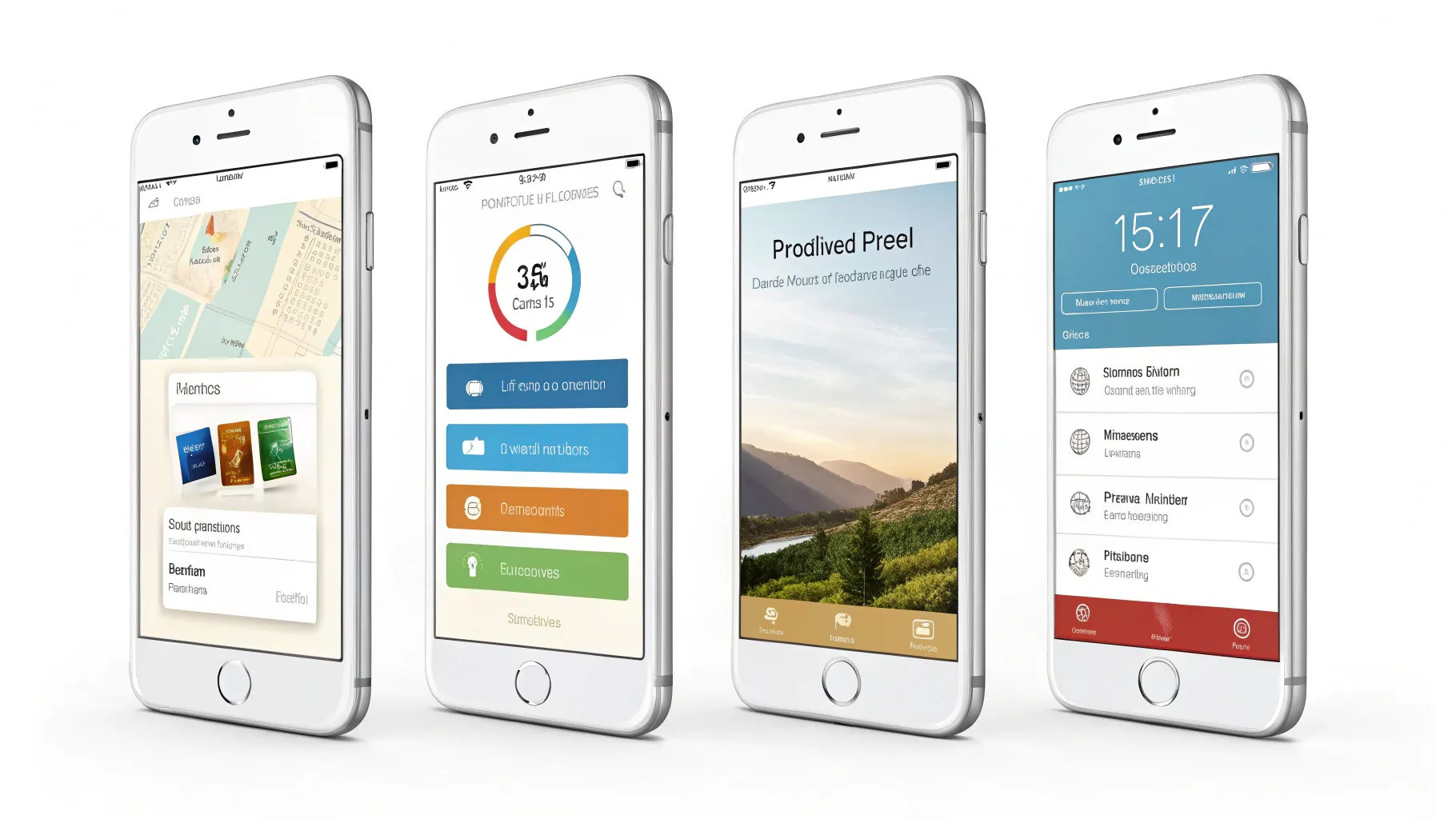

We all have them: those elusive habits we swear we’ll adopt, our ambitious goals, and our unwavering consistency. Maybe it’s waking up with the sun, working out every morning, or finishing that big project ahead of time. Often, however, the reality is quite different.
Instead of focused progress, we become distracted by endless YouTube rabbit holes, check emails that can wait, or simply stare at a blank screen, wishing motivation would strike. Is this a familiar struggle for you? It’s not just you. At least 8 times out of 10, according to James Clear, you are more likely to slip back into old patterns and habits than stick with new ones.
Using Artificial Intelligence to enhance personal productivity might sound futuristic, but it’s becoming increasingly possible. Using AI, you can manage your day, maintain momentum, and stay focused without superhuman discipline.
Throughout this post, we’ll explore how AI can transform the way we approach personal growth, enabling us to establish lasting habits, overcome procrastination, and focus like never before.
The Modern Productivity Paradox: Why We Struggle
To unlock AI’s potential, we need to understand the context of our current productivity challenges. In today’s world, there is an unprecedented level of connectivity and information overload. Despite its benefits, though, the constant stimulation of our brains makes maintaining a steady course incredibly challenging.
- The fickle nature of habit formation. Building new habits requires consistent effort, frequently requiring the rewiring of deeply ingrained neural pathways. It’s easy to gain motivation in the beginning. New habits, however, typically take 18 to 254 days to form. As a result, most people struggle to remain consistent when their willpower wanes or obstacles arise.
- The procrastination puzzle. Procrastination isn’t just a matter of laziness. It’s more often a result of overwhelm, a crippling fear of failure, a quest for perfection, or a lack of clarity on where to begin. As human beings, we are hardwired for immediate gratification, which makes tasks with delayed rewards particularly difficult.
- Focus erosion. With all the digital distractions and the glorification of multitasking, we’ve severely diminished our ability to focus for long periods. With fragmented attention spans, prolonged concentration is rare and valuable. According to a Microsoft Corp. study, people now lose focus after eight seconds, which is shorter than the attention span of a goldfish.
Although traditional productivity solutions are valuable in themselves, they often require a significant amount of self-discipline and willpower. As a result, AI provides external support, objective behavioral analysis, and tailored strategies that adapt to each individual’s needs.
1. Habit-Building Made Easy with AI: Your Personalized Habit Architect
Habits are the invisible scaffolding that supports a productive life. Forming them, however, requires a consistent trifecta of effort, reminders, and constructive feedback. This is precisely where AI tools shine, making the process faster and more efficient.
Learn from your habits with personalized habit trackers.
Don’t limit yourself to basic checkboxes. With apps such as Fabulous, Habitica, and Way of Life, users can track their habits using artificial intelligence and behavioral science. In addition to sending generic reminders, these intelligent tools;
- Send nudges tailored to your schedule and behavior.
- Adapt prompts based on your success rate. For instance, if you frequently miss your morning workout, the AI might suggest an alternative workout plan for you.
- Keeping your motivation piqued with gamification and visually compelling progress tracking is key. In contrast to static to-do lists, these apps learn from your actions. For example, the AI might suggest a new time slot based on your energy peaks, suggest shorter 5-minute journaling bursts, or even offer motivational nudges based on previous success patterns.
Suggestions based on your grand goals.
With tools powered by generative AI, such as Notion AI or large language models like ChatGPT, ambitious goals can be broken down into small, achievable habits.
Have you ever dreamed of writing a book? Rather than feeling overwhelmed, ask the AI to break it down into manageable micro-habits, such as “Suggest daily habits for writing a book” or “Help me outline one chapter each week.”
It is even possible for these intelligent tools to generate customized “habit stacks” based on your current lifestyle. Adding a new habit to an existing one, like “reviewing my top three priorities after I drink my morning coffee,” makes integration seamless.
2. Beat Procrastination with AI-Powered Prompts and Structure: Your Accountability Ally
It is common for procrastination to stem from a potent cocktail of overwhelming emotions, perfectionism, or paralyzing lack of clarity. With AI, you can dissolve all three, providing the structure and clear pathways you need.
- Breaking down tasks intelligently provides instant clarity. Whenever you look at a daunting, unclear task like launching a company blog, have you ever felt paralyzing fear? Artificial intelligence is well-suited to transforming nebulous intentions into specific, actionable steps. Ask it for a structured roadmap: pick a niche, choose a platform, write a bio, draft your first post, etc. Within seconds, you’ll receive a detailed roadmap with all the steps you need to launch a blog. All of a sudden, the impossible seems not just possible, but also feasible.
- With virtual AI assistants, “time blocking” can be automated. It can require a significant amount of mental energy to allocate time for focused work in your calendar. Using AI-powered tools like Motion, Reclaim, or Clockwise, this process can be elegantly automated. They analyze your existing meetings, deadlines, and even your own preferences for scheduling protected, focused blocks of time. By doing this, you eliminate decision fatigue, ensure critical work receives attention, and safeguard your calendar for deep work.
- Empathetic chatbots for mindset coaching. In some cases, procrastination isn’t about logistics, but rather about psychological hurdles, such as the fear of failure or impostor syndrome. In real-time, non-judgmental prompts can be provided by AI chatbots, such as Woebot, or platforms using GPT-style language models. To help you get unstuck, they can offer exercises to reframing negative thoughts, mindfulness techniques, or gentle encouragement. By understanding the root causes of your procrastination, you can actively delay less and gently shift your mindset.
3. Sharpen Focus with AI Tools That Filter Distraction: Your Attention Guardian
In today’s connected world, more willpower doesn’t always work; fewer distractions do. Using AI, you can create that crucial buffer, shielding your attention from distractions.
- Adaptive, smart distraction blockers. Using AI, browser extensions, and applications like Freedom, RescueTime, and Focusmate, analyze your unique digital habits and recommend features tailored to your needs. When designated “focus hours” are in effect, they intelligently block access to distracting websites and apps. For instance, RescueTime measures your actual “productive” versus “distracted” time and adjusts your focus goals accordingly. With some of these sophisticated tools, distractions are automatically muted when you block out time for deep work – no more extra clicks needed.
- AI-powered platforms for real-time accountability. Platforms like Focusmate also use AI for timed work sessions, although it isn’t strictly AI. In this case, you verbally specify your task to your partner, work silently for a set period of time (e.g., 50 minutes), and then check in. You feel the psychological accountability right away. Whether it’s availability or productivity rhythm, the AI matches you with productive partners for a supportive, structured environment that’s not rigid or isolating.
- Personalized soundscapes powered by artificial intelligence. Sometimes silence can feel too empty, while music with lyrics can feel too distracting. Brain.fm and Endel are particularly helpful in this regard. Using AI, they generate music that boosts concentration through scientific engineering. The rhythms and compositions are dynamic enough to adapt to your current energy levels, the time of day, or even the task you’re doing.
4. Use AI to Create Your Ideal Environment: The Curated Workspace
When the right environment is in place, habit formation and sustained focus become effortless. In both the physical and digital worlds, artificial intelligence can be a very valuable tool in curating that ideal space.
- Concentration-enhancing soundscapes. In addition to Brain.fm and Endel, other tools use AI to generate focus music that enhances concentration. A scientifically-backed soundscape can be more effective than a generic playlist because it adjusts to your task, energy level, and time of day.
- Optimizing workspaces with AI. Are you having trouble setting up your home office or streamlining your digital workspace? Take advantage of generative AI tools like ChatGPT and Claude. You might ask questions like: “How can I organize my workspace so that I can focus more easily?” or “Suggest a minimalist Notion dashboard layout so that I can manage my daily projects and tasks more efficiently.” Within seconds, your workspace, digital tools, files, and overall workspace will be seamlessly aligned with your workflow, rather than creating friction.
5. Build a Daily System with AI as Your Coach: Your Strategic Co-Pilot
You don’t need more isolated productivity hacks; you need a cohesive system that works. As you construct and refine such a system, AI can be your insightful co-pilot.
- A rapid daily planning tool that takes only five minutes. Whenever you wake up, you don’t have to stare blankly at your overflowing brain. Instead, simply ask your favorite AI assistant: “Help me plan my day based on my calendar and current goals.” The AI will create a focused, actionable plan immediately. With this process, individuals do not drift through their days without clear direction due to morning decision fatigue.
- An automated end-of-day reflection process. Rather than shutting down at the end of your workday, ask your AI to reflect: “How did I do today?” or “What should I do differently tomorrow?” AI enables you to identify patterns in productivity and refine your habits, while maintaining a running log of your insights, thereby fostering continuous learning through an evolving feedback loop.
Final Thoughts: AI Is a Tool, Not a Crutch
With the proper use of artificial intelligence, you can accelerate your progress, stay focused, and build lasting habits. However, it isn’t a magic fix. You must still take action.
You can consider AI as a personal trainer for your mind. It won’t do the pushups for you, but it will provide the motivation, the plan, and the form check you need to keep going.
So next time you find yourself scrolling mindlessly or procrastinating on a task, try this: open your favorite AI assistant and type, “Help me get back on track in the next 15 minutes.” Then follow its suggestions.
You don’t have to be perfect. The key is momentum. And now, you’ve got the smartest assistant in the world — right at your fingertips.
FAQs
What exactly does “using AI for productivity” mean? Is it about AI doing my work for me?
No, AI won’t do your work for you. It’s about leveraging AI to increase productivity. To achieve this, AI tools and features should be leveraged to;
- Understand your patterns. You can use AI to analyze your habits, focus times, and procrastination triggers.
- Provide personalized insights. Using data, AI can provide tailored advice and strategies.
- Automate routine tasks. In addition to reminders and scheduling, AI can also handle information filtering.
- Create supportive environments. You can use artificial intelligence to manage distractions in your workspace and optimize it. The goal is to augment your capabilities, not to replace them.
Is this just hype, or are there real, practical applications right now?
There’s no doubt that it’s real and practical right now. Artificial intelligence has already been integrated into many common tools. Intelligent calendars, generative AI models, and apps that use AI to personalize reminders are all readily available.
In the near future, though, expect even more sophisticated applications in this field.
Do I need to be a tech expert to use AI for productivity?
Not at all!
AI tools are typically designed to be user-friendly. It is not uncommon for applications to integrate AI capabilities seamlessly into their existing user interfaces. Even though it can be interesting to learn about how AI works, it isn’t essential to utilize its practical applications for productivity. All you need is a smartphone app or a web browser to use these AI tools.
How can AI specifically help me build new habits?
AI can serve as a “habit architect” in several ways;
- Personalized tracking. In addition to simple checkmarks, it analyzes your habits, identifying hidden patterns (for example, “you skip your workout after late meetings”).
- Intelligent reminders. With AI, context-aware nudges can be sent based on your schedule, location, and even energy levels.
- Adaptive goal setting. With artificial intelligence, you can set realistic habit goals based on your past performance, preventing burnout caused by overly ambitious targets.
- Gamification & reinforcement. Several AI habit apps use gamifying elements (streaks, points) along with customized feedback to keep you motivated.
I always procrastinate on big projects. How can AI help me just start?
AI is very effective in tackling task overwhelm, one of the most common procrastination triggers:
- Task breakdown. By feeding a large, intimidating project to a generative AI (such as Gemini or ChatGPT), the project can be broken down into smaller, actionable, sequential steps, making it seem less intimidating and more manageable.
- Prioritization. In addition to using established frameworks (e.g., the Eisenhower matrix), AI can analyze your workload and guide you on where to focus your limited energy first.
- Simulated accountability. By sharing your goals with your AI assistant, it will serve as a non-judgmental check-in partner, prompting updates at regular intervals.
My biggest problem is constant distractions. How can AI help me focus better?
You can use AI as your “attention guardian;”
- Intelligent notification management. In deep work periods, AI-powered operating systems and apps automatically silence non-essential notifications. There are even some applications that can summarize incoming messages, allowing you to quickly triage without being distracted.
- Dynamic scheduling. Using tracked energy levels or past productivity, AI can suggest optimal times for different types of tasks (e.g., creative vs. administrative), maximizing your peak focus periods.
- Focus on environment optimization. Smart home devices can automatically adjust lighting, play focus music, or adjust the temperature to create an ideal working environment during your block.
Image Credit: Photo by Bahaa A. Shawqi: Pexels











John Rampton
John’s goal in life is to make people’s lives much more productive. Upping productivity allows us to spend more time doing the things we enjoy most. John was recently recognized by Entrepreneur Magazine as being one of the top marketers in the World. John is co-founder of Calendar.